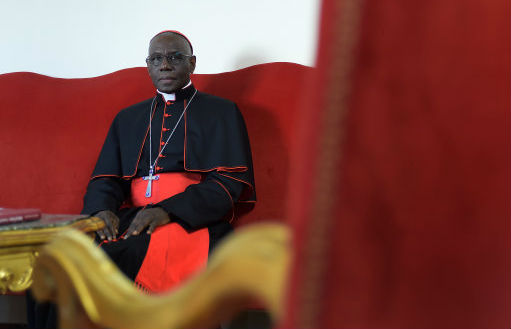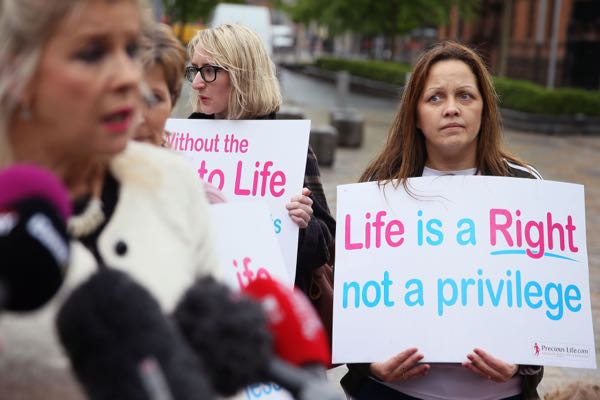No-one should be forced to act against their conscience on abortion, Britain's Catholic bishops say today.
In a powerful statement to mark the 50th anniversary of the 1967 Abortion Act, the bishops say: "Many professionals face the challenge that respect for conscientious objection against abortion has been eroded. Personal conscience is inviolable and nobody should be forced to act against his or her properly informed conscience on these matters."
Lamenting the 200,000 abortions that took place in 2015 alone, the bishops of England, Wales and Scotland say they are seeking "a change of minds and hearts about the good of the child in the womb and the care of mothers who are pregnant."
Every abortion is a tragedy and few consider that abortion is the desirable or best solution to a pregnancy, they say.
"The complex set of conditions in which a woman finds herself pregnant and may consider having an abortion may limit the exercise of freedom and diminish moral culpability.
"When abortion is the choice made by a woman, the unfailing mercy of God and the promise of forgiveness through the Sacrament of Reconciliation are always available. There is always a way home to a deeper relationship with God and the Church, as recent Popes have emphasised, which can heal and bring peace."
They call for a new understanding of the intrinsic value and worth of every human life in the womb, a better protection of unborn children diagnosed with a disability and more "education in moral responsibility about human sexuality and the meaning of sexual expression within marriage."
The bishops also praise mothers who have continued their pregnancies in difficult circumstances and politicians who have sought to reform the legislation better to protect unborn life.
While addressed primarily to the Catholics, the bishops are speaking also to all who seek to uphold the dignity of human life and protect the unborn child.
Few truly consider that abortion is desirable or the best solution to a pregnancy which may be "challenging" for a number of reasons, they state, describing "widespread unease" among many people who recognise that abortion carries with it "tragic consequences".
Deciding to have an abortion is a "grave decision", they acknowledge, influenced by factors such as threats to mental or physical health, not knowing how to cope with being pregnant, being alone or under pressure or lacking support, the diagnosis of disability in the womb and more.
They add: "The issue of abortion not only has consequences for mothers, but also affects fathers, both in terms of taking responsibility to protect and care for the children they have conceived and in coping with the impact of abortion."
In his letter The Gospel of Life, Pope Francis echoed the words of St John Paul II when he wrote of women who opt for an abortion: “I am well aware of the pressure that has led them to this decision. I know that it is an existential and moral ordeal. I have met so many women who bear in their heart the scar of this agonising and painful decision. What has happened is profoundly unjust; yet only understanding the truth of it can enable one not to lose hope.”
The bishops are particularly concerned that the law in Britain permits the abortion of a child with disability up to birth, standing "in stark contrast" to the protection and respect shown to people who experience disabilities after they are born.
"The witness of those who compete in the Paralympic games shines out as a way in which people with disability excel and compete, using their gifts to the full. We hope that greater reflection and consistency in the approach to unborn children with disabilities will lead to a change in understanding, with greater protection provided through new legislation," they state.
They also recognise that there has been an "erosion of respect" for those with conscientious objections against abortion, and express concern about the possibility of pharmacists losing their right not to dispense abortifacients if it is against their conscience or religion.
The bishops plead: "This 50th anniversary needs to bring about a new debate to change attitudes towards human life in the womb, to promote what it means to make good and authentic choices, and to protect and care for mothers and their children. As Catholics, we urge that, throughout our countries, prayer and fasting be used for the protection of human life, especially for life within the womb, for all expectant mothers, for fathers and families."
(Pic: Anti-abortion protesters outside the Royal Courts of Justice in Belfast. Credit: Press Association)



 Loading ...
Loading ...